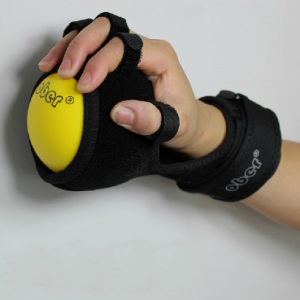Physiotherapy for Multiple Sclerosis
What is multiple sclerosis and what’s important in Physiotherapy for Multiple Sclerosis?
Physiotherapy for multiple sclerosis is very important. Multiple sclerosis or MS is caused by damage to the nerve fibers within the central system (brain and spinal cord) affecting movement, cognition, and behavior.
MS has additionally termed a disease because the system attacks the myelin (protective sheath) that surround the nerve fibers disrupting signals traveling along these fibers resulting in a loss of muscle control, balance, coordination, difficulty walking, and changes in mood.
Every person with MS includes a unique presentation. Symptoms are wide-ranging and variable. It affects more women than men and is caused by a mix of genetic and environmental factors.
Physiotherapy for multiple sclerosis will help with the symptoms of MS-like mobility, spasm balance, and coordination making life a good deal easier.
Physio can promote recovery when relapses occur maximizing potential and keeping an individual with MS as active the maximum amount as possible for as long as possible.

Diagnosis of multiple sclerosis
Types of sclerosis
There are four main kinds of MS which include:
- Benign MS – this can be the mildest kind of MS and involves few relapses (times when your symptoms flare up). However, someone with this kind of MS will have to have had only a few or no symptoms for about 15 years before a diagnosis is confirmed. this sort of MS may aggravate with age.
- Relapsing-remitting MS – 80% of individuals with MS have this sort of MS. this implies you have got relapses followed by periods of remission when your symptoms reclaim. Relapses occur when new or old symptoms flare-up suddenly followed by a time of recovery or remission.
- Secondary progressive MS – About 50% who have relapsing-remitting MS persist to develop secondary progressive MS within 10 years. The symptoms don’t heal once the relapse is over and slowly build up making everyday tasks tougher over time.
- Primary progressive MS – this kind of MS implies that symptoms get steadily more severe with no periods of remission.
Diagnosis of sclerosis
Symptoms are very vague making diagnosis difficult. An individual may need to undergo many tests to substantiate a diagnosis and this could be a lengthy process.
If MS is suspected you may be remarked a neurologist who will conduct an in-depth neurological examination which can involve, magnetic resonance imaging (MRI), evoked potentials, or a lumbar puncture.

What causes multiple sclerosis?
MS is caused by the inflammation of nerve fibers in the brain and the spinal cord. This inflammation occurs because white blood cells start attacking the myelin covering the nerve fibers, which then develop scars called lesions, or plaques.
This slows down and can even stop the messages traveling along the nerve fibers. Over time, the myelin can be completely broken down and the nerve fibers themselves can become damaged.
It is not fully understood what causes this damage to the myelin. It has been suggested to have genetic and environmental components.
There is no single gene that causes MS, however, research into the possibility of a combination of genes that make MS more likely are under investigation.
Alternatively, people who are related to a person with MS are slightly more likely to develop MS.
MS is relatively common in the UK, North America, and Scandinavia, but hardly ever occurs in countries such as Malaysia and Ecuador so research suggests that MS is more likely to occur in countries north of the equator suggesting climate influences. It has been suggested that MS could be triggered by a particular bacteria or virus which thrives in cooler environments. However, more research is needed in this area.
What are the effects/symptoms of multiple sclerosis?
The symptoms of MS vary from person to person as well as day today.
The most common symptoms include:
Non-Physical
- Eye problems, including pain, double vision, some blindness, and difficulty focusing.
- Bladder and bowel problems
- Difficulty speaking and swallowing
- Mood swings
- Problems with learning and memory
- Sexual difficulties
Physical
- Fatigue
- Muscle weakness, stiffness, and spasms (muscle contracting tightly and painfully)
- Loss of balance, coordination, and dizziness making walking difficult
- Pain (neuropathic or musculoskeletal)
- Numbness or tingling of your skin
Physiotherapy will help with the physical symptoms of MS whilst also improving your energy levels and self-esteem.
Physiotherapy for multiple sclerosis
Physiotherapy can be of great benefit to people with MS. It helps maintain independence by improving symptoms such as fatigue and muscle spasm, as well as preventing loss of mobility, strength, and balance. Physiotherapists play a key role in the treatment of MS. Our specialized neurological physiotherapists at Tvastacare.com are experienced in treating people with MS.
Our dedicated physiotherapists at Tvastacare.com will help you achieve your maximum potential for physical independence, flexibility, strength, and fitness levels, and provide advice and support on any new movement problems that may arise. Physiotherapy for multiple sclerosis is important when the physical symptoms are changing, or during the recovery phase after a relapse. Physiotherapy aims to:
- Help control and co-ordinate movement patterns.
- Reduce spasticity and encourage more normal movements.
- Regain functional abilities.
- Keep muscles strong and strengthen those that are weak.
- Keep joints mobile and prevent stiffness
- Improve coordination and balance.
- Prevent pressure sores.
- Prevent muscle contractures
- Reduce the risk of falling
- Promote recovery
Physiotherapy treatment will depend on which symptom you are experiencing at the time and treatment programs will be tailored to your individual needs.
At Tvastacare.com we understand that MS not only affects you but those close to you. A structured program will be developed to incorporate family and carers and will be centered around:
- Correcting posture with particular emphasis on the right way to stand, to walk, to rise from a sitting or lying position, and how best to position oneself for sleeping.
- A range of exercises and physical activity to improve muscle strength and functional ability.
- Specialized stretches to relieve stiffness or spasms
- Exercises to build stamina and reduce fatigue
- Exercises to promote coordination and balance
- Advice on walking aids, ankle braces, or orthotic devices to aid everyday activities and minimize injury.
- Hydrotherapy can help people with MS stretch tight muscles and improve posture in standing and walking.
- Promoting normal and easier movement so that you can enjoy a more active life.
The treatment program is adjusted appropriately, following re-assessment when you have made progress or when your symptoms change.
At Tvastacare.com our motivated physiotherapists will therefore promote your independence by showing you how to help yourself in trying to regain your movement and coordination.
Physiotherapy for multiple sclerosis will also focus on activities of daily living and will maximize your potential and enhance your recovery.
Physical therapy should commence as soon as possible following an initial attack to allow you to reach your full potential and limit the progression of your symptoms.
Physio-services for MS often have a long waiting list and treatment is restricted to a few sessions. Our specialized neurological physiotherapists at Tvastacare.com are able to provide physiotherapy assessment and treatment as soon and as often as is required.
To book an appointment call 8800901567, book online, or alternatively request a free phone consultation.
